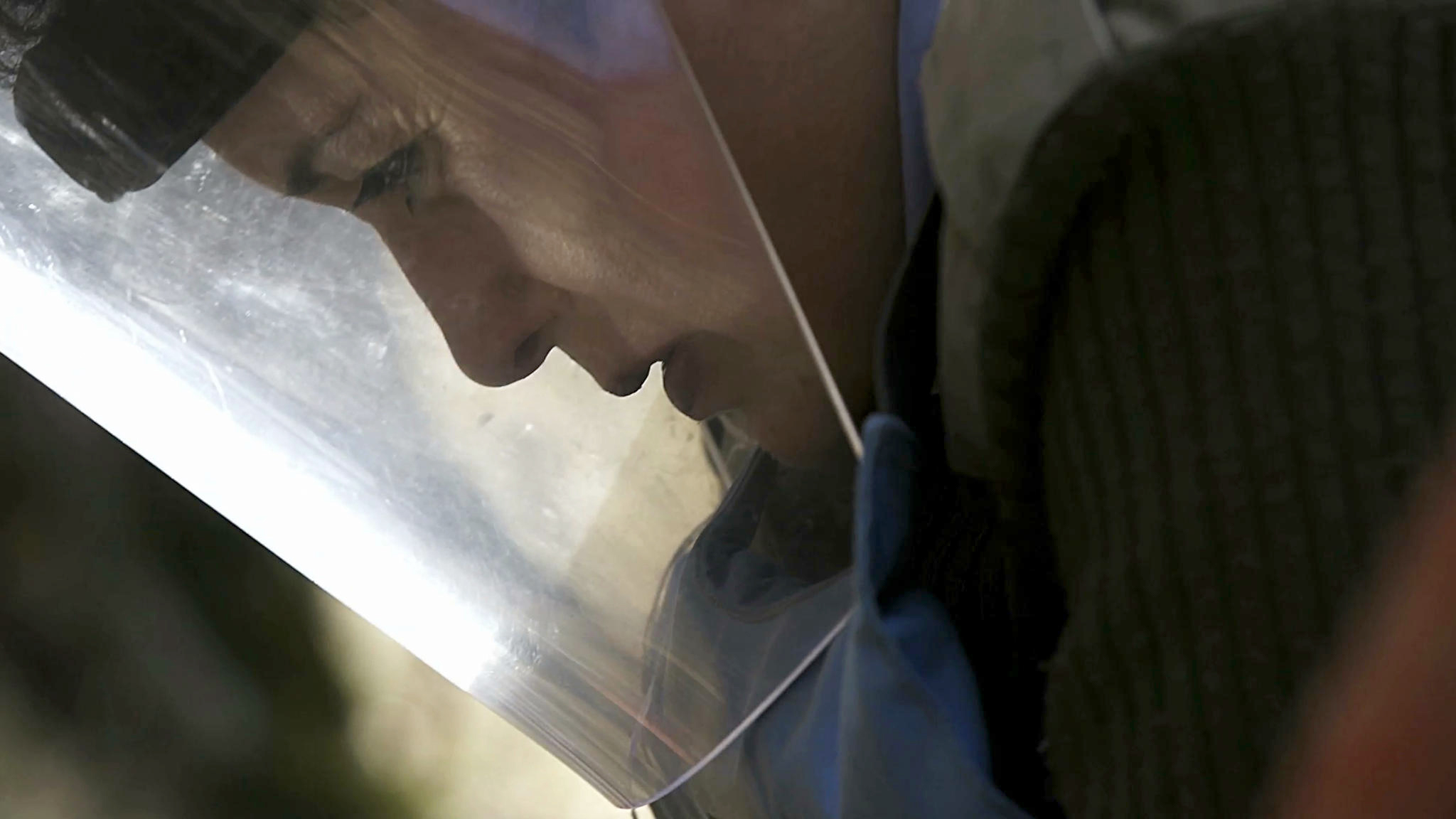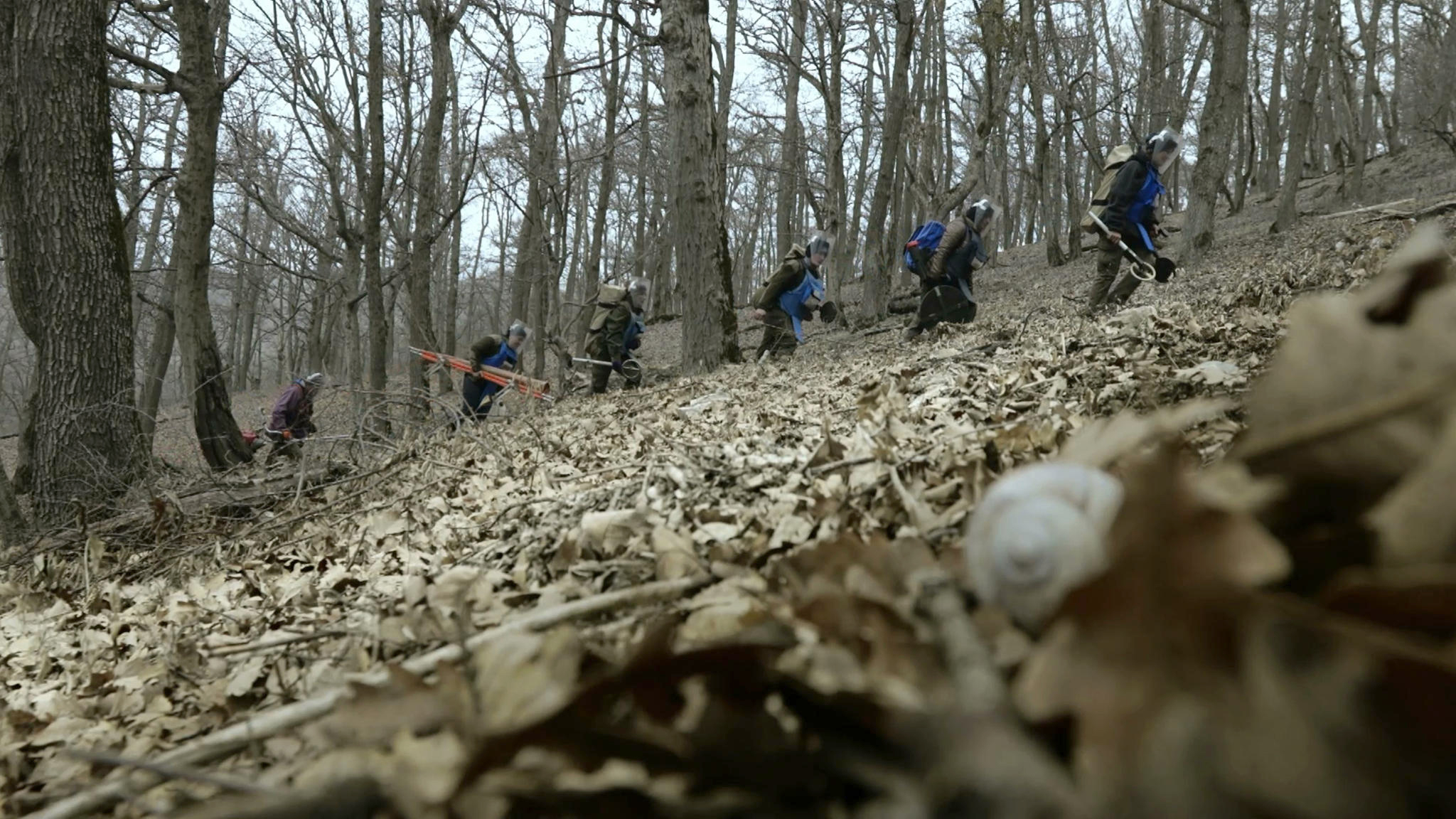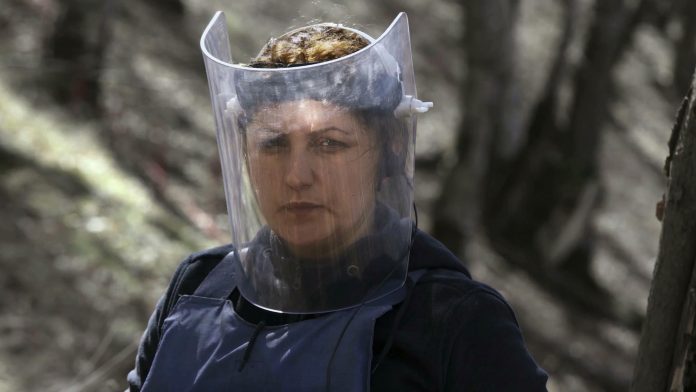(THIS ARTICLE IS MACHINE TRANSLATED by Google from Norwegian)
The Nagorno-Karabakh region of the South Caucasus is scenic with a lot of forest and mountains. But the idyll is deceptive: humanity's deadly battle for territories is imprinted into the earth in the form of unexploded landmines left behind after the 90s conflict.
When the Soviet Union disbanded, battles erupted in the area – old conflicts of identity and sovereignty were renewed. The ethnic Armenian majority wanted to unite in the Armenian Republic. When the request was rejected by Moscow, tensions escalated to war with Azerbaijan.
After the ceasefire, the territory is officially considered part of Azerbaijan, but most of it is governed by the Republic of Artsakh, an independent Armenian state.
Silva Khnkanosian's beautiful and low-key documentary offers no plethora of facts or partisan rhetoric. The dialogue is sparse, and the film visually depicts the dignified commitment that lies in the important but dangerous task – the mine clearance – which will make the country safe and habitable again.
A painstaking work
According to a census in 2018, more than 73 mines have been neutralized so far. The dangerous work has injured 000 people and 300 have lost their lives. How many the work has saved is not revealed. The film does not seem particularly interested in political points or apportionment of guilt, but simply states that the mines are there, their presence as solid as the mountain itself, where no just resentment or diplomatic justification can remove them – it is only the methodical work that humans perform that can do this.
It is this work, which is very painstaking, careful and slow we see repeated by five women as they clear away mines in a mountain crossing, the Lachin corridor. The five are local women, but their vests bear the logo of The Halo Trust, a British and American non-governmental organization formed to remove the garbage a war leaves behind, especially landmines.
The mood changes significantly when the evening comes, the workload is triggered in form
of laughter, unity and communion.
The equipment they use – visors, blue vests and solid gloves – seems to be of good quality, but as protection against the destructive power of the mines, it is still slim, which means we hold our breath of excitement when performing their delicate operations. The consequence of a powerful explosion is looming over them every minute.
The wind blows in the autumn leaves and the landscape transforms with its eternal seasons, while the women perform their precise work: to discover a buried object, mark its outline, gently dig up soil and remove stones with a shovel, cut the plant roots so that the mine is exposed in the day and make a controlled explosion.

Laughter and cohesion
The mood changes significantly when the evening comes, the stress of the work is triggered in the form of laughter, unity and communion. The mine-clearing equipment is packed away, and the universal tools for life and nourishment emerge: the dinner soon gathers on the stove, there are close-ups of smoking hot coffee and food.
In a few-word documentary, a joke told around the dinner table stands out all the more. The joke goes like this: A dragon goes to Moscow and demands that the city's inhabitants prepare their best dishes for it. The dragon does not like the food, so it eats the inhabitants. The same thing happens in Yerevan, but when the dragon arrives in Karabakh it explodes by a landmine.
The consequence of a powerful explosion hangs menacingly over them every single minute.
The absurdity of a pervasive, everyday threat is turned on its head when it becomes a final point in a joke. Stories and rituals – in fact, the whole culture and life itself – become all the more important when death rides the country in such a safe and random way.
Help and destruction from foreign powers
But in the kitchen, with the coffee cup in hand, togetherness and survival are palpable, where humans are still in close contact with their own mortality. Nothing to be Afraid of of is life affirming, but a nagging turmoil persists. The Halo Trust seems to have provided them with the best equipment and methods for mine clearance, while other foreign powers are the most common sources of deadly military weapons, the foreign forces are also able to help.

Director Silva Khnkanosian
But it is the local civilians who have the most dangerous job, it is their bodies and lives that are in constant danger during the cleanup. Maybe it is simply because it is their conflict and nobody else's?
But the film also plants questions in the viewer's mind; about whose who control access to war-related technology, how to kill more effectively, or demilitarize places. And it points to another question: How can the actual mine clearance, similar to archaeological excavations, have become an act that simply neutralizes the death and annihilation of an entire people?
The status of war as the very antithesis of culture and the flourishing of collective memory has rarely been clearer.
Translated by Iril Kolle


